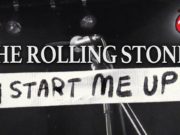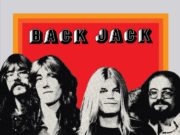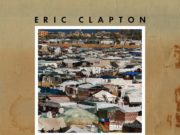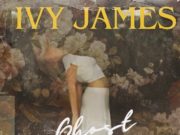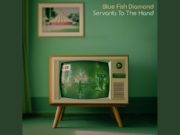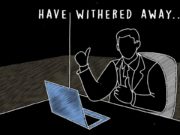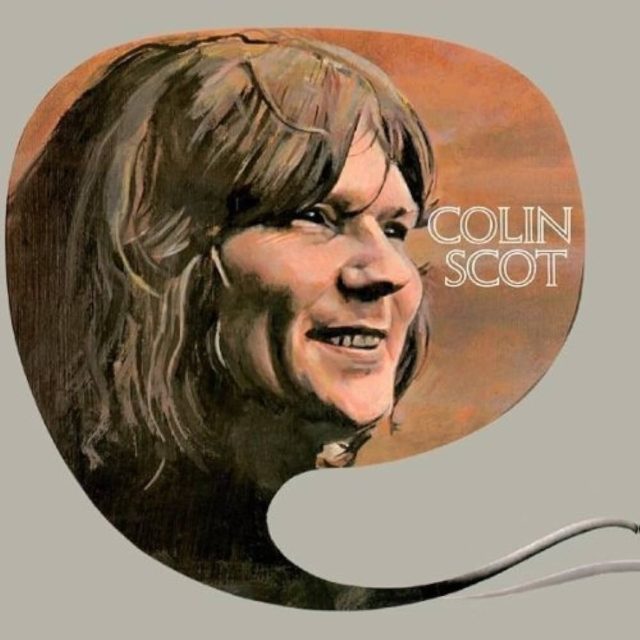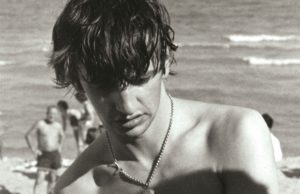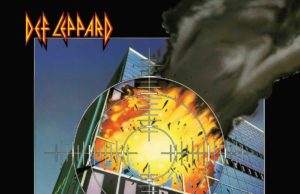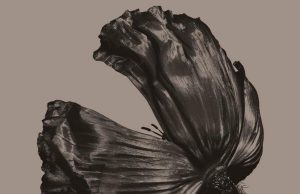 This album is the poster child for “Wait… what?”
This album is the poster child for “Wait… what?”
Bet you never heard of Colin Scot. Here’s a guy who came out of folk-group obscurity, got signed by United Artists and made his first record at Trident Studios with the most ridiculous slew of prog-rock A-listers you’ve ever seen: Rick Wakeman of The Strawbs, his eventual bandmate Jon Anderson of Yes (they first met during these sessions, apparently), Robert Fripp of King Crimson, Peter Gabriel and Phil Collins of Genesis, Peter Hammill and David Jackson of Van Der Graaf Generator, Lindisfarne vocalist Alan Hull, Davey Johnstone of the Elton John band, and guitarist Brinsley Schwarz. The biggest name of all, though, might be keyboardist David Kaffinetti — aka Viv “I got two hands” Savage from Spinal Tap.
The album artwork is by Paul Whitehead, who, in addition to playing drums and cello with Hammill, also did album artwork for Genesis’ Trespass, Nursery Cryme and Foxtrot, along with some Van Der Graaf Generator albums during that period. The sleeve he did for Scot has an illustration of London’s Battersea Power Station on the back cover — six years before Pink Floyd made it famous all over the world.
How the heck did Scot manage all this? Networking and charm. Just that simple. He was one of those “to know him is to love him” dudes by all accounts. At the time, the smart money was on Scot being just as big a star as any of his established guests. It just never worked out that way. All three of his records were bombs, though this first one has become a cult favourite due to the names associated with it, and the generally decent songwriting.
Time and again I read stuff about him where he’s described as the life of the party, larger than life, a tremendous entertainer, talented musician, songwriter and a legendary drinker. The only problem is, for the way people talk about him and by the company he keeps, I expected more from this solo album. It starts off great and kind of goes to shit. Before the end of the first side you’re treated to a song so bad it made me laugh out loud in the car. He lost me like a food-poisoned patron of the midway. Like the cab driver suddenly put his hand on my knee. Like lightning on the golf course. I bailed on this record and even reneged on my agreed $15 purchase of it.
Scot was born Colin Thistlethwaite on St. Patrick’s Day 1941, in northeastern England. When he was around 10 years old, his California-born parents moved to London, Ont. That’s right — Ontario. By college, he decided to bid farewell to The Forest City and headed to California State University where he got involved in the local music scene. I’ve read through a few London messageboards involving his old high school friends, many of whom kept up with him throughout his career. They all remember him fondly for his humour, charisma, talent — and drinking prowess.
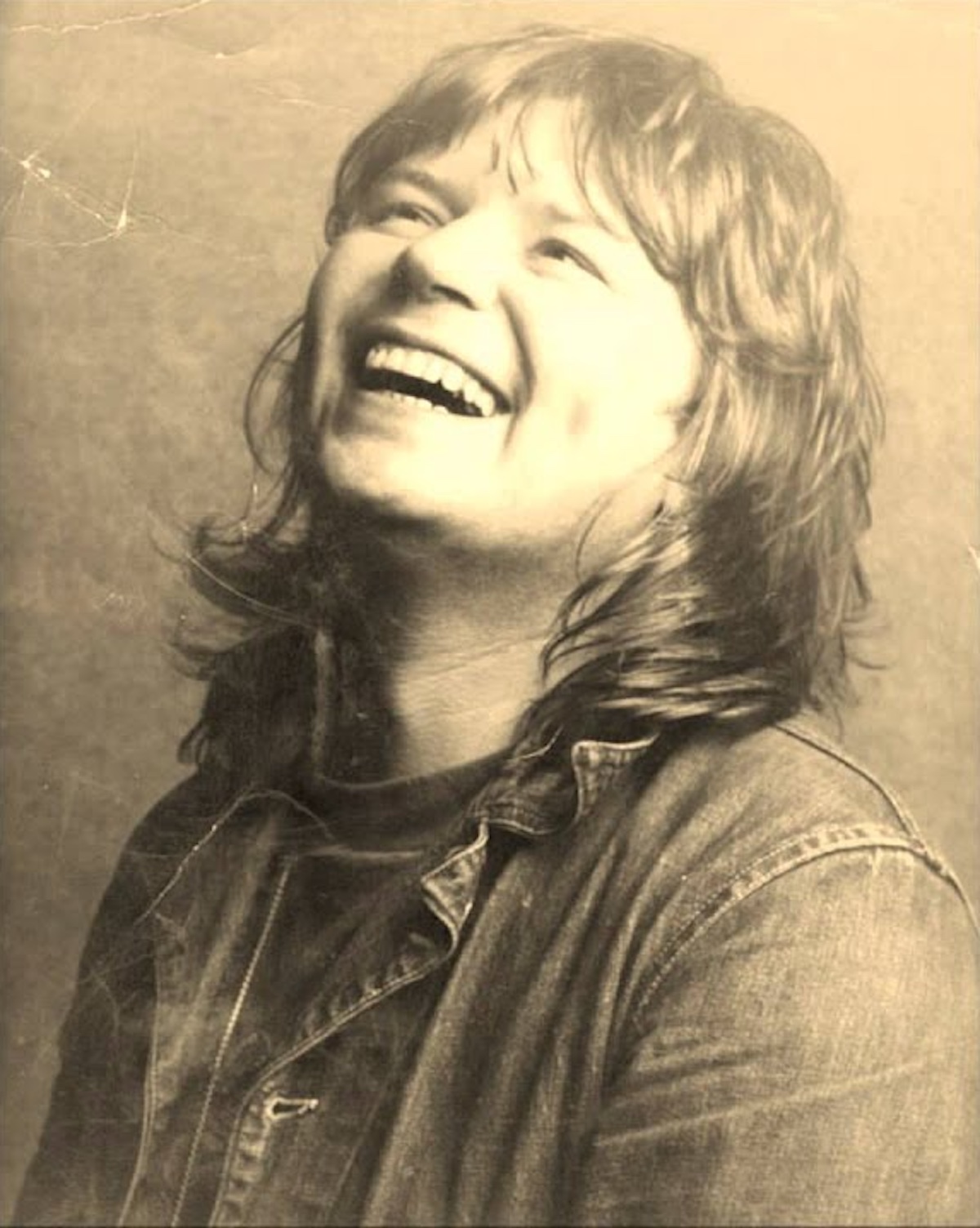
It was one of those high school chums who seems to lay claim to giving him the nickname Scotty, which led to his stage name of Colin Scot. So, by the time he was in Cali, Scotty was using that name and started getting gigs at Disneyland and with various hootenanny-type groups. He joined one such outfit called The Yachtsmen, who changed their name to The What’s New and were hired for a European tour, including Paris (not Ontario). They did a cover of Gordon Lightfoot’s Early Morning Rain as their first record. The song did well in France, as did the next single, featuring two songs penned by Scot. The What’s New broke up not long after, but Scot decided to stay overseas. He headed up to London (yes, England) and got into the folk scene there. By 1970 he was playing all over the place and had earned a solid reputation for his shows, personality and songwriting. It was during this period that he recorded the album we’re examining today.
Right off the bat, I’m wondering if the opening track — Do The Dance Now, Davey — has anything to do with guitarist Johnstone. You’d think so, due to the circumstances — except Scot didn’t write it. There’s definitely some affection for Johnstone. In the musician credits he’s referred to as “My Wee Davey” which is weird, but then again, everyone gets pet names. Part of his legendary charm, I suppose. Or, perhaps there were just contractual problems, so ANVs (artist name variations) needed to be used.
It just so happens this album was recorded at almost the exact same time and place where Johnstone punched his ticket for what would be a very successful career as a backing musician. Before being invited into Elton’s band, he was hired to play sitar, acoustic guitar, banjo, mandolin and lute on the gawdawful 1971 debut solo album of Elton’s lyricist Bernie Taupin. The 1971 spoken-word poetry album was recorded at Dick James’ studio, but mixed at Trident — the studio where Elton recorded Madman Across The Water on Feb. 27 and early August 1971. Due to his work on Taupin’s record, producer Gus Dudgeon asked Johnstone to take part in the Madman sessions — after which he was extended an offer to join the band permanently.
Scot’s debut album was recorded at Trident too — between Jan. 26 and March 27, 1971. So there was a bit of overlap. Scot’s debut album does, at times, sound quite a bit like some of Elton’s music from this period (Elton John, Friends, Tumbleweed Connection, Madman Across The Water and Honky Chateau). But, Elton’s songs are much more consistently good — and all original compositions. Scot did not write his entire album. Far from it, he only penned four of the 11 songs (and did so under his birth name). Two songs are by Martin Hall, who would eventually write Excuse Me for Peter Gabriel‘s first solo album. Another song was written by Neil Innes of The Bonzo Dog Band (and later The Rutles). Johnstone contributed The Boatman, which isn’t among the album’s best.
Like Scot, Johnstone was a known commodity on the London folk scene. So it’s easy to see how he ended up on this album. The rest of the superstars got involved thanks to their familiarity with Scot, and perhaps due to their relationship with producer John Anthony. He produced Genesis, Lindisfarne, Van Der Graaf Generator and even keyboardist Kaffinetti’s band Rare Bird. Interestingly, both non-comedian members of Spinal Tap were both in avian-themed prog bands — Kaffinetti in Rare Bird and drummer Ric Parnell (aka Mick Shrimpton) from Atomic Rooster. But I digress.
Scot’s record starts off just fine. The opening track — the aforementioned Do The Dance Now, Davey — is one of three Hall songs, and is quite good. Then there are a trio of Scot originals which are all decent. I particularly like the second song, the countrified My Rain.
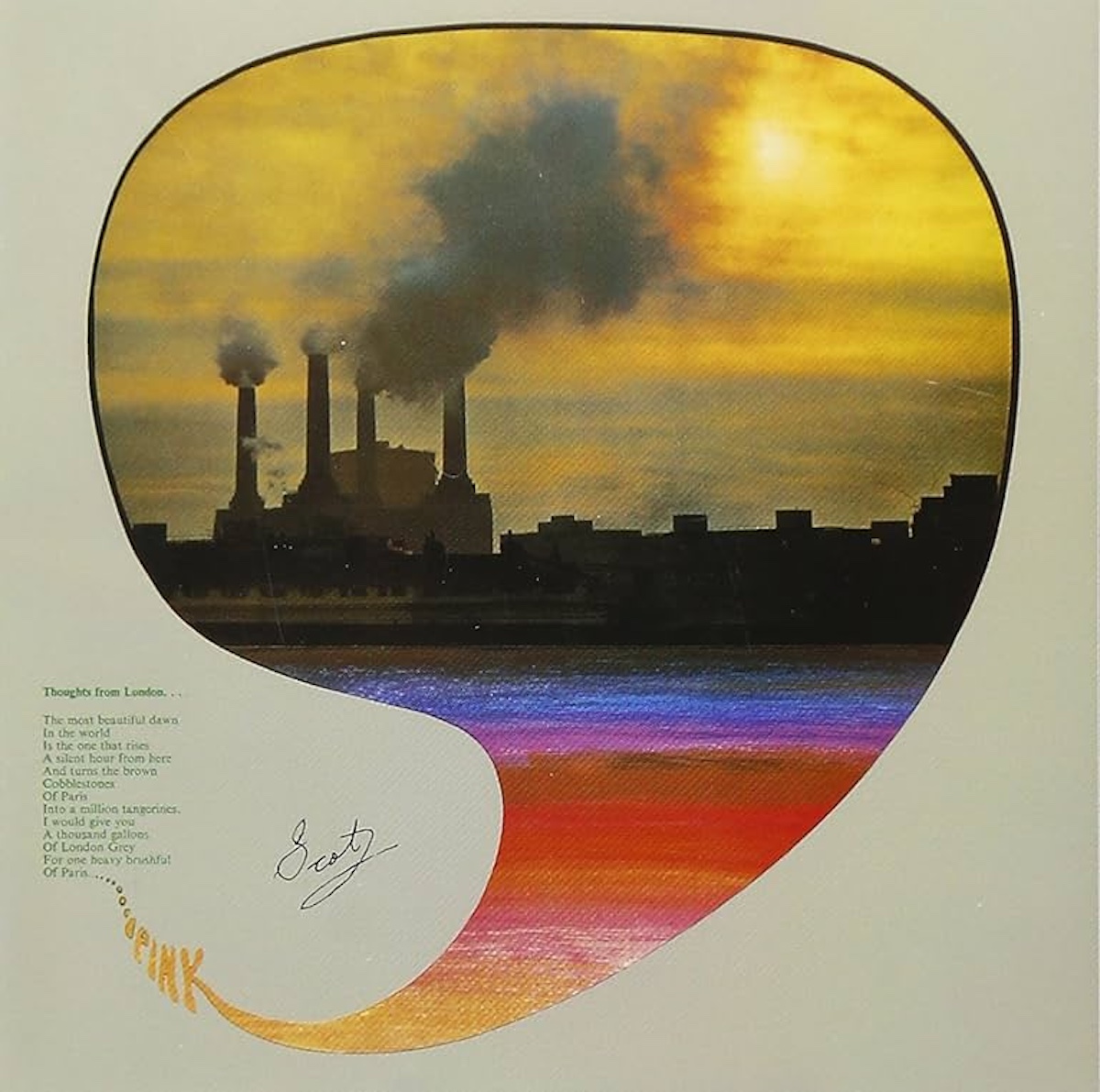
Then the album hits its low point with the cringey Baby In My Lady. Good gawd. Let me just say I almost never like songs with the word “lady” in the title or chorus. This one does it so much, it’s almost a joke. At first I worried this was gonna be another song like You’re Having My Baby by Paul Anka, which might be the worst song ever. But the title isn’t to be taken literally:
“She’s my baby
Once in a while, she’s a lady.”
This mortifying, four-minute gender-role shitscape was written by Mickey Newbury, who is (shockingly) a member of the Nashville Songwriters Hall Of Fame. He’s the guy who wrote Kenny Rogers And The First Edition’s hit Just Dropped In (To See What Condition My Condition Was In), and An American Trilogy, best known for Elvis’s bombastic, over-the-top interpretation. His songs have been recorded by other artists hundreds and hundreds of times.
Lead Us comes next, which really sounds like it could have been on 1972’s Honky Chateau. Reminds me of Salvation. This is the first time we really hear the backing vocals of all those big names, not that any of them stand out from the others. They’re just solid backing vocals — loads of ’em.
Side 2 starts with You’re Bound To Leave Me Now and some choice acoustic guitar soloing, while Savage provides a nice organ pad. This is the second track written by Hall. It’s pretty busy, for one of those Everybody’s Talkin’ At Me-type songs. Loads of noodling. Like walking through Long & McQuade.
This is followed by Johnstone’s The Boatman. I know the context is folk music, so I should chill out about the ye olde-type references and language, but it’s just not for me. I much prefer the next track, Nite People. The spacious acoustic guitar and changes remind me of the middle section of the Genesis track The Musical Box. It even has a “lady” lyric I actually don’t hate:
“She’s a lady, she’s got time,
Brush back your hair, and let me get to know your face.”
It then goes into a heavier bit, like Manassas or something. This is another spot with loads of backing vocals, courtesy of the many honoured guests. You get more of the all-star backing vocals in the next one, Hey! Sandy. It’s catchy. This should have been released as a single.
The album wraps with Here We Are In Progress, penned by Hall. The most fascinating thing about this track are the Fripp acoustic chords through it, and the definitive Fripp electric guitar at the end as the song rises for the finale.
If it weren’t for Baby In My Lady, I would have bought this record. Part of me still wishes I had. Though I really doubt I’ll ever feel the need to spin it more than once per decade. Maybe you disagree. If that’s the case let me suggest you get yourself the 2006 remaster, which has three outtakes and one extra song — Long Time Gone (not the David Crosby one). Why the hell this was left off the record is beyond me. Swap this for Baby In My Lady and suddenly you’ve got a 4/5 record, not a 3/5 one.
• • •
Area Resident is an Ottawa-based journalist, recording artist, music collector and re-seller. Hear (and buy) his music on Bandcamp, email him HERE, follow him on Instagram and check him out on Discogs.


